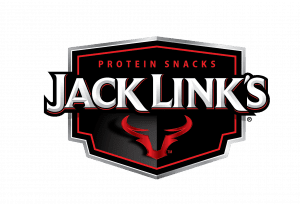 Whether you’re an advanced bodybuilder or a beginner just looking for a way to maintain muscle, you know it’s important to eat enough protein. Protein is crucial in repairing and maintaining your body (ripped muscles and all!) and bodily functions, as well as providing calories.
Whether you’re an advanced bodybuilder or a beginner just looking for a way to maintain muscle, you know it’s important to eat enough protein. Protein is crucial in repairing and maintaining your body (ripped muscles and all!) and bodily functions, as well as providing calories.
Most of us think of protein as the entree — it’s the chicken, beef or pork starring in a main dish near you! It’s easy to get your meat fix, so you might wonder whether eating a large 12-ounce slab of steak (920 calories, 84g protein) is really an efficient strategy to get the most out of your protein. (Hint, hint: It’s not.)
What’s the Strategy?
High-protein foods don’t come cheap. If your goal is to boost muscle recovery and size, it’s a good strategy to spread out protein intake and sandwich protein-containing foods around your workout.
What this looks like: Divide your protein up into three meals and two snacks per day. If you’re working out that day, make sure to have some of that protein shortly before a workout and within 60 minutes of working out to optimize recovery.
Why This Works
Our muscles and organs are constantly being torn down and rebuilt, and they require protein to do so. On any given day, we break down and reuse about 300–400 grams of protein! That’s more than most of us need daily, but we can get away with eating less because we get some of that by recycling proteins in our body. The protein in our food gets broken into amino acids, which are then used to build up, maintain and repair any vital organ you can think of: heart, muscles, brain, liver, lungs, even bones.
Naturally, amassing muscle demands a higher rate of muscle buildup than breakdown, and you need to have enough amino acids around. Strength-training exercises create minor tears in your muscle fibers, triggering them to rebuild stronger, thicker (and sexier!). Shortly after an iron-pumping session, the muscles you’ve worked on gear up to rebuild themselves, becoming more receptive to nutrients from the bloodstream.
It’s commonly believed you have a 90-minute window before and after exercise to flood your muscles with the nutrients they need to rebuild themselves. (Note that we don’t have a specific way to store amino acids like we do fat and carbs, which is why it’s important to sneak in some protein-rich foods within this window.) Pairing carbs with protein helps your muscle cells refuel and stimulates insulin to support muscle growth. Additionally, spreading your protein intake throughout your meals and snacks gives your body a constant stream of amino acids to draw on for healing and repair.
What to Snack on Pre- and Post-Workout
Don’t get caught at the gym foodless. Plan ahead, and bring along some convenient snacks that will fuel you through your workout and help your body heal afterward. Eating a light pre- and post-workout snack with protein and carbs ensures you have the right nutrients to lay down some serious strength. Most of the research done in this area has historically used 10–20 grams of protein as the serving; however, you may benefit from more depending on your genetics, body composition, lifestyle and fitness level.
Here are examples of portable snacks you can sneak into your gym bag:
- 1 (6-ounce) container of fruit-flavored Greek yogurt (140 calories, 10g protein, 20g carbs)
- 1-ounce beef jerky + 1 medium banana (185 calories, 15g protein, 30g carbs)
- 1 (TK-ounce) carton reduced-fat chocolate milk (155 calories, 9g protein, 25g carbs)
Do you prioritize protein to build muscle? Share your thoughts and experiences below.
Sponsored by Jack Link’s.




